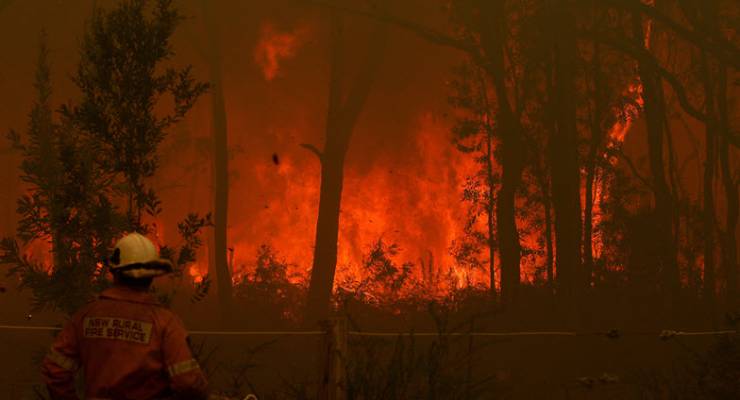
Has “alarmist messaging” on climate change turned voters off real action? Crikey readers spent the weekend mulling over Roz Bellamy’s question of the media’s approach to tackling the climate crisis. Elsewhere, readers discussed press freedom in Australia and the ongoing need for an Australian bill of rights.
On climate change messaging
Tony Walker writes: The idea that “climate alarmism” — stating the truth about our critical circumstances — leads to paralysis or denial, is just not true. Think about the most effective public health campaigns: the AIDS “grim reaper” campaign, grisly cigarette plain packaging imaging, shocking road safety ads. All these are designed to shock, to cause fear, reflection and response. They have all worked, in that they changed people’s behaviour for the better. A shockingly honest public health campaign around climate change could have the same impact.
On an Australian bill of rights
Sara Dowse writes: For all that, I’ve always been puzzled by the apparent Australian reluctance when it comes to a bill of rights. In my native country it has too often been honoured in the breach than the observance, but the fact that it is there is hugely important and it has been used for the wider good in key moments of history. What a lot of work we need to do here with our constitution — indigenous recognition and now this. In the meantime, parliament could enact a charter of rights. But would it ever get the gumption to do so? They’re not even interested in refusing a pay rise.
Niall Clugston writes: Basically, human rights protections are absent from Australian law. When Bob Hawke tried to expand Australian freedom in 1988 he was defeated by none other than John Howard who objected to giving rights to property holders who had their homes confiscated by the government. Conclusion: if you want a bill of rights, you have to eliminate the Libs.
Pete Steedman writes: In 1967, I was editing the University of Melbourne student newspaper, Farrago. I had commissioned a Northern Territory Patrol Officer to do a three part series on the plight of aboriginal communities in the outback, with specific reference to the generations of children who were being destroyed by government policies and a racist and exploitative cattle industry. On arriving at the printers, I was confronted by officers of the federal police who served me with a “D Notice” — a communication issued to the media by the Defence, Press and broadcasting Committee. In other words, they had the right to censor and remove articles that were a threat to national security. If you can tell me 52 years later,how exposing the condition of Aboriginal kids living in in our prosperous country was a threat to national security then you win the steak knives.
It was not uncommon for the government of the day to use a variety of police forces to threaten elements of the press and public the government didn’t agree with. The Special Branch (since disbanded) indulged in thuggery and often (with other services) acted as agents provocateur turning peaceful protests into street battles. The government also used the vice squad to decide unilaterally an article or words were obscene and while student editors may have been short of cash, the authorities made it clear they would be charging the printers and if necessary close them down. It was intimidation and thuggery, but it was the business of the day. A free press, distorted as it often is by media magnates, is vital to a healthy democracy. Some of our politicians should reread the history of the 1930s and reconsider their positions.
Send your comments, corrections, clarifications and cock-ups to boss@crikey.com.au. We reserve the right to edit comments for length and clarity. Please include your full name if you would like to be considered for publication







Crikey is committed to hosting lively discussions. Help us keep the conversation useful, interesting and welcoming. We aim to publish comments quickly in the interest of promoting robust conversation, but we’re a small team and we deploy filters to protect against legal risk. Occasionally your comment may be held up while we review, but we’re working as fast as we can to keep the conversation rolling.
The Crikey comment section is members-only content. Please subscribe to leave a comment.
The Crikey comment section is members-only content. Please login to leave a comment.